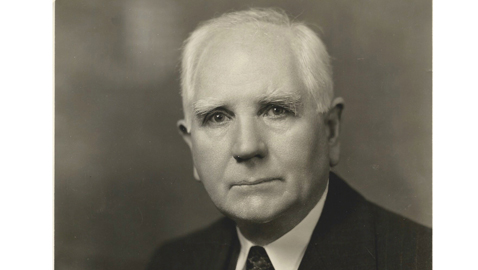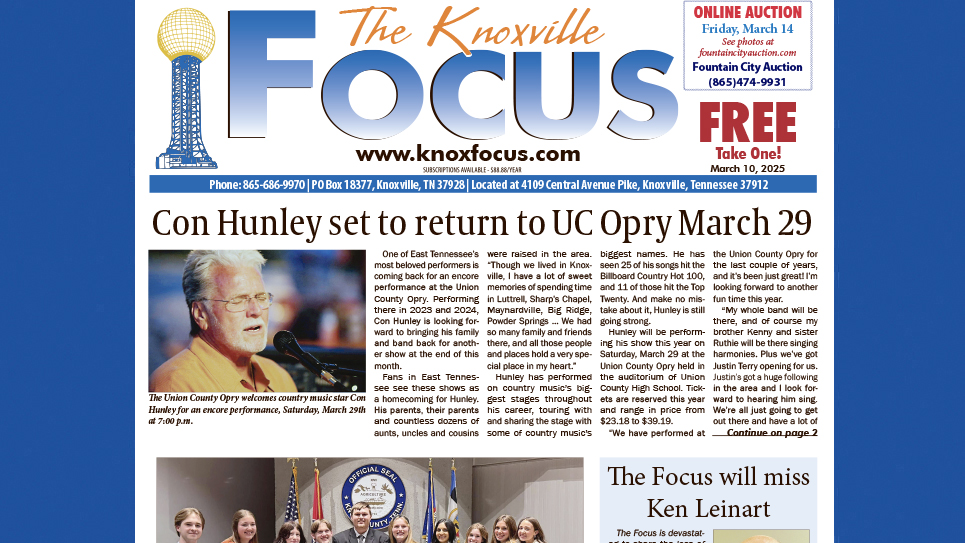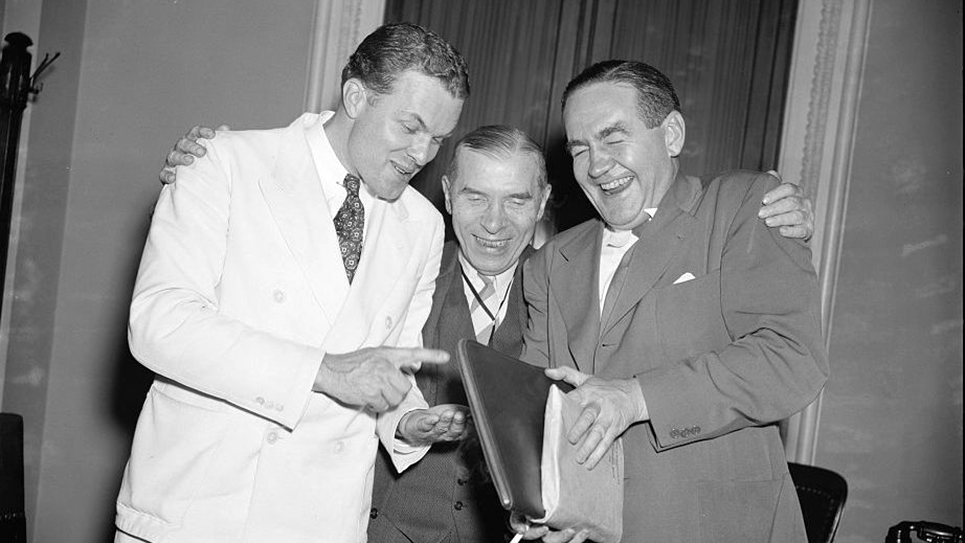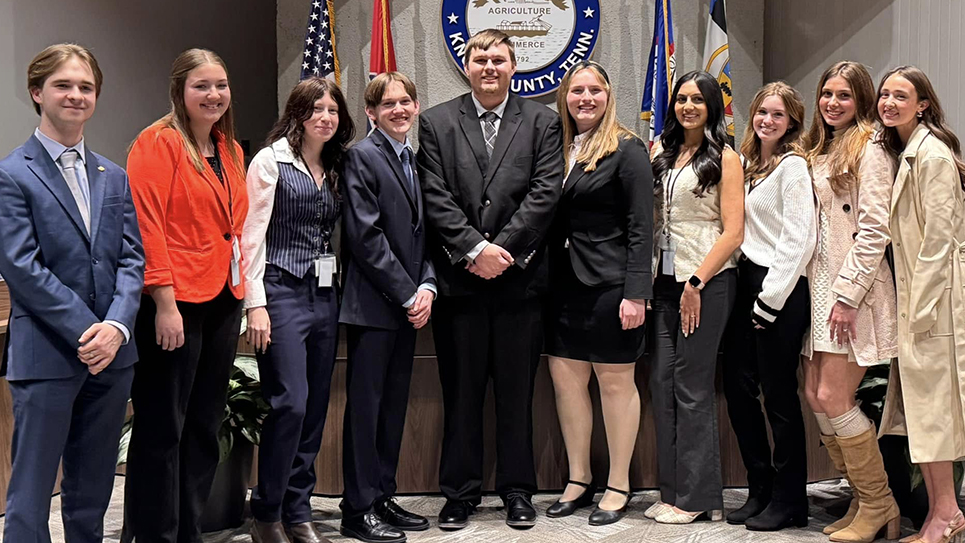Ridley Mitchell, the colorful congressman from Tennessee’s Fourth District, suddenly found himself embroiled in a debate with fellow Representative John J. Cochran of Missouri, an effective and acerbic speaker. The topic was the seemingly unimportant removal of Bedford County in Mitchell’s Congressional district to the jurisdiction of the federal court in Winchester, Tennessee, which was in turn, attached to the federal court in Nashville. Cochran recalled Mitchell had claimed in a remark made to a House committee farmers in Bedford County were lucky to get 5 cents for eggs; Cochran snarled he did not believe farmers should bear the burden of having to travel sixty miles to appear in court. Veteran newspaperman John D. Erwin, a special correspondent for a number of Tennessee newspapers, including the Nashville Tennessean, covered the altercation between the two congressmen. Erwin wrote, “Judge Mitchell’s speech was one of the wittiest and most entertaining of this session and kept the House in an uproar.” When fellow Democrat Harry P. Beam of Illinois wondered just what contribution Tennessee had made to the country, Ridley Mitchell replied, “If the gentleman is not familiar with the contribution, which Tennessee has made to this country, it would be a very serious reflection upon the gentleman who makes the inquiry.” Mitchell’s retort caused House members to erupt in laughter and left Congressman Beam red-faced. Mitchell went down a list of prominent Tennesseans, including Presidents Andrew Jackson, James K. Polk and Andrew Johnson. Mitchell rattled off famous frontiersmen and soldiers Nathan Bedford Forrest, John Sevier, Davy Crockett and Alvin York. “I want to make the observation that in this same environment was produced the greatest secretary of state that any administration ever had for it is there Cordell Hull has his residence,” Mitchell thundered.
Ridley Mitchell then told his colleagues his district “produces cotton, corn, livestock, all the mineral resources” and more importantly, “above all, Tennesseans continue to produce fathers and mothers to go west and settle that country.” That brought Congressman Thomas F. Ford to his feet and asked if Mitchell could name any Tennesseans who had “contributed to the wealth and greatness of the state of California.” Ridley Mitchell barely paused before saying, “If I had the capacity of an adding machine and knew all the statistics contained in Mulhall’s reports, I would not be enabled to answer the inquiry. Men like McAdoo (William G. McAdoo, former Secretary of the Treasury during the administration of President Woodrow Wilson, presidential aspirant, and then U. S. senator from California) and others came from Tennessee and went to California.”
“Tennessee is the center of the world, my friends,” Ridley Mitchell said. “She has contributed not only of material wealth, but of that which is immensely more valuable. The service rendered by her patriotic sons of the battle fields and in the halls of Congress throughout the years.”
Naturally, the people of Tennessee enjoyed not only Ridley Mitchell’s wit, but his advocacy of his district and the Volunteer State. Mitchell hurried home to Tennessee in the summer of 1933, bringing along his Chief of Staff Todd Elrod and maintaining offices in Cookeville and Murfreesboro. That summer Congressman Mitchell, along with Senator K. D. McKellar and Congressmen Carroll Reece and Jere Cooper, headed to Paris, Tennessee where the American Legion planned a celebration honoring Congressman Gordon Browning. Mitchell hurried to Nashville to speak to 500 “letter carriers” employed by the U. S. Post Office at the Maxwell House Hotel. Congressman Mitchell told the postal employees he believed the government could raise taxes from “international bankers who had money and had not paid federal income tax” rather than reducing the salaries of “letter carriers and ex-service men.” Mitchell was also the featured speaker when the newly formed Lions Club of Lebanon, Tennessee celebrated its charter. Moving throughout his district, congressman Ridley Mitchell regaled the Rutherford County chapter of the Disabled American Veterans’ club with his soaring oratory in July of 1933. Mitchell, with an almost infallible sense of good politics, stopped in tiny Woodbury, Tennessee to “mingle with the large first Monday crowd” on his way to Murfreesboro to speak to an American Legion meeting. Mitchell was one of the principal speakers, including former governor A. H. Roberts, in Livingston, Tennessee at the “Century of Progress” homecoming celebration. “The best Anglo-Saxon blood in the country flows in the veins of the people of this town,” Ridley Mitchell told his delighted audience, “whose sons have gone so far, but who remain so true to the traditions of their youth.” Congressman Mitchell left Livingston for Murfreesboro to speak before the Rotary Club. Mitchell claimed Tennessee “had been the most favored state in the Union” under the Roosevelt administration, telling his audience “that approximately $34,000,000 is to be spent within a three hours’ ride of Murfreesboro.” While Mitchell urged Rotarians to support President Roosevelt and the New Deal, he did not mention virtually all of the federal largesse coming to Tennessee was the handiwork of Senator K. D. McKellar, who was the ranking member of the Senate’s powerful Appropriations Committee. The wily and relentless McKellar’s ability to produce appropriations for Tennessee was the subject of awe and some little resentment on the part of his colleagues inside the Senate.
Ridley Mitchell walked through the grounds of the Clay County fair, shaking hands, slapping backs and conversing with friends in late August of 1933. Congressman Mitchell traveled to Wartrace, Tennessee along with residents of the Normandy, Cortner, Bell Buckle, and Cortner communities on “an inspection trip to Cascade Springs.” Each of the communities were interested in harnessing the water from the springs to pipe into the towns. Mitchell had spoken in Bell Buckle on the project earlier in that afternoon. Ridley Mitchell was the principal speaker in Lynchburg, Tennessee when the Moore County elementary and high schools were opened on August 29, 1933. Never one to miss a county fair, Congressman J. Ridley Mitchell was again walking through the throngs of people at the DeKalb County fair in Alexandria, Tennessee on the last day of August.
As Ridley Mitchell campaigned nonstop inside the Fourth Congressional district, friends of Ewin L. Davis were not entirely happy with the congressman. Out of elective politics himself, Ewin L. Davis worked at his job on the Federal Trade Commission and was elevated to the chairmanship at the end of December 1934. Davis had other things on his mind besides politics in the spring of 1935 as his mother lay dying. Christina Davis was the mother of six children; five sons and one daughter. She had seen her children do quite well in both the worlds of business and politics. Former President Woodrow Wilson and his wife, Edith, had visited Mrs. Davis after they had left the White House. The ill and partially paralyzed former President called on very few people and Mrs. Wilson invited Christina Davis to repay the call at their home in Washington, D. C. Mrs. Warren Harding had also invited Christina Davis to the White House while Mrs. Davis had been in the Capitol to visit her son. As she lay dying in the home of her only daughter, her sons hurried to her bedside. All of her children, save for ambassador-at-large Norman Davis were with her when she slipped away.
Ridley Mitchell faced a spirited challenge from state senator John J. Jewell, who had resigned his post as attorney for the federal Home Owners’ Loan Corporation, a position he had secured through Senator K. D. McKellar. Mitchell’s political aspirations clearly went well beyond the House of Representatives and when Cordell Hull resigned his seat in the United States Senate, the Congressman flirted with the idea of running in the 1934 special election while Congressman Gordon Browning intended to challenge the powerful McKellar. Ridley Mitchell eventually thought better of the notion and his opponent, John J. Jewell, drew support from many friends of Senator McKellar and former Congressman Ewin L. Davis. Mitchell underestimated Jewell’s candidacy and initially, the congressman didn’t believe a speaking campaign inside his Fourth District was necessary. Ridley Mitchell soon discovered Jewell was gaining strength rapidly and began to campaign hard. Mitchell’s own supporters had plotted to support Senator Nathan L. Bachman, who had been appointed to succeed Cordell Hull, against Gordon Browning to promote the Fourth District congressman’s own prospective bid for the Senate in 1936. While Mitchell defeated John J. Jewell, the margin was narrower than the congressman might have wished. Jewell carried only four of the eighteen counties inside the Fourth District, but he nipped at Ridley Mitchell’s heels in several other counties. Jewell won 20,157 votes to 26,209 votes for Congressman Mitchell.
Mitchell campaigned hard for the Democratic ticket throughout his district and beyond, a clear sign he intended to be a statewide candidate in the future. Congressman Mitchell, along with a female companion, was injured when he was returning from Knoxville, having attended the Kentucky – Tennessee football game. Mitchell’s car collided with a truck in Crossville and his injuries were serious enough to send him to a Nashville hospital. The Mitchell’s brother, Dr. E. W. Mitchell, said the congressman “suffered a bursted knee cap on the left leg, his left arm was broken” and was “bruised about the chest and cut about the face.” Ridley Mitchell underwent surgery to repair his kneecap at St. Thomas Hospital in Nashville and Dr. E. W. Mitchell said “the outlook for his early recovery is fairly hopeful.” Dr. Mitchell worried about the “danger of pneumonia or infection setting in from the operation”, but declared “the congressman’s condition is satisfactory tonight.” The congressman’s doctors were satisfied enough with his condition to announce Ridley Mitchell would be able to “eat Christmas dinner at his Crossville home” as well as to “answer the roll call when Congress meets in January.” That proved to be an overly optimistic opinion, as Mitchell was not released from the hospital until December 30, 1934. Leaving the hospital on crutches, Mitchell said, “I’ll be there when they start” when he was asked if he would attend the opening of the new Congress.
Ridley Mitchell was well enough to express his delight that former U. S. senator Smith Brookhart, a noisy progressive Republican who had been defeated in 1932, had lost his job with the Agricultural Adjustment Administration where he was employed as a foreign trade advisor. Brookhart had been one of the more egregious members of Congress who had hired a large number of his immediate family. Mitchell had used Brookhart as a prime illustration of the need to pass his anti-nepotism bill.
Ridley Mitchell once again turned back a determined challenge from John J. Jewell in the 1936 Democratic primary. Mitchell saw his best chance to go to the U. S. Senate in a 1938 special election for the remaining four years of the late Senator Nathan L. Bachman’s term. Governor Gordon Browning had appointed George L. Berry to the seat following Bachman’s death and Berry very much wanted to remain in the Senate. Senator K. D. McKellar and Memphis Boss E. H. Crump backed the candidacy of Tom Stewart of Winchester. Undeterred, Ridley Mitchell announced his own candidacy and while he campaigned hard, he ran a disappointing third in the Democratic primary. Mitchell’s last hurrah was his bid for governor against incumbent Prentice Cooper in 1942. Ridley Mitchell, displaying his usual flair for publicity and intensive personal contact with voters, gave Governor Cooper a thorough scare. Mitchell would return to Washington, eventually serving as a special assistant to the Attorney General of the United States. After retiring, Ridley Mitchell came home to Crossville where he died of a heart attack on February 26, 1962 at age eighty-four.
Ewin L. Davis, remained on the Federal Trade Commission until his own death. He served capably and quietly as a member of the FTC, long since removed from the furor of Tennessee politics. Davis had been stricken with a paralytic stroke in July of 1949 and died on October 23, 1949 while in Bethesda Naval Hospital.
Both Ridley Mitchell and Ewin L. Davis made their mark on Tennessee, yet they represented two distinctly different paths of public service. The quiet and scholarly Davis was the antithesis of the colorful and publicity-seeking Ridley Mitchell. Still, both were remarkable Tennesseans.







